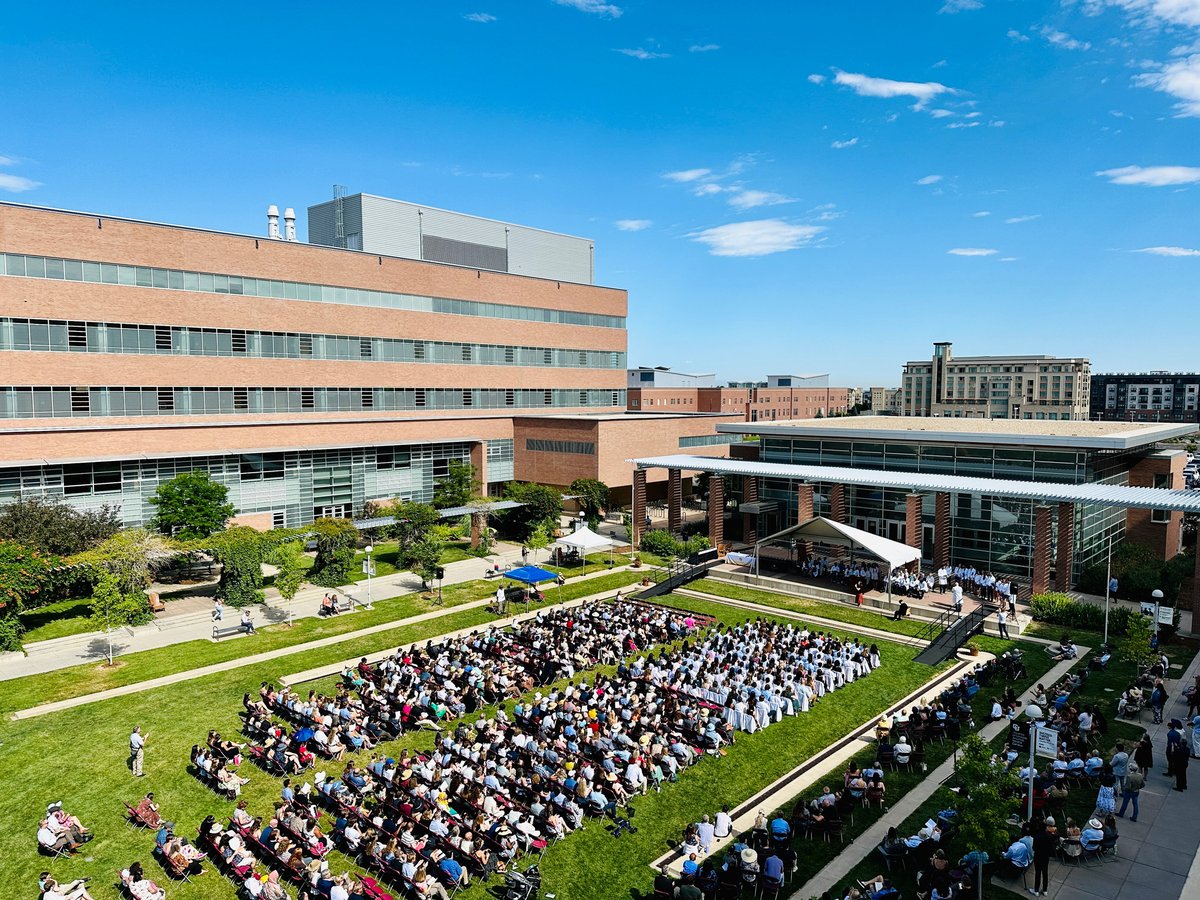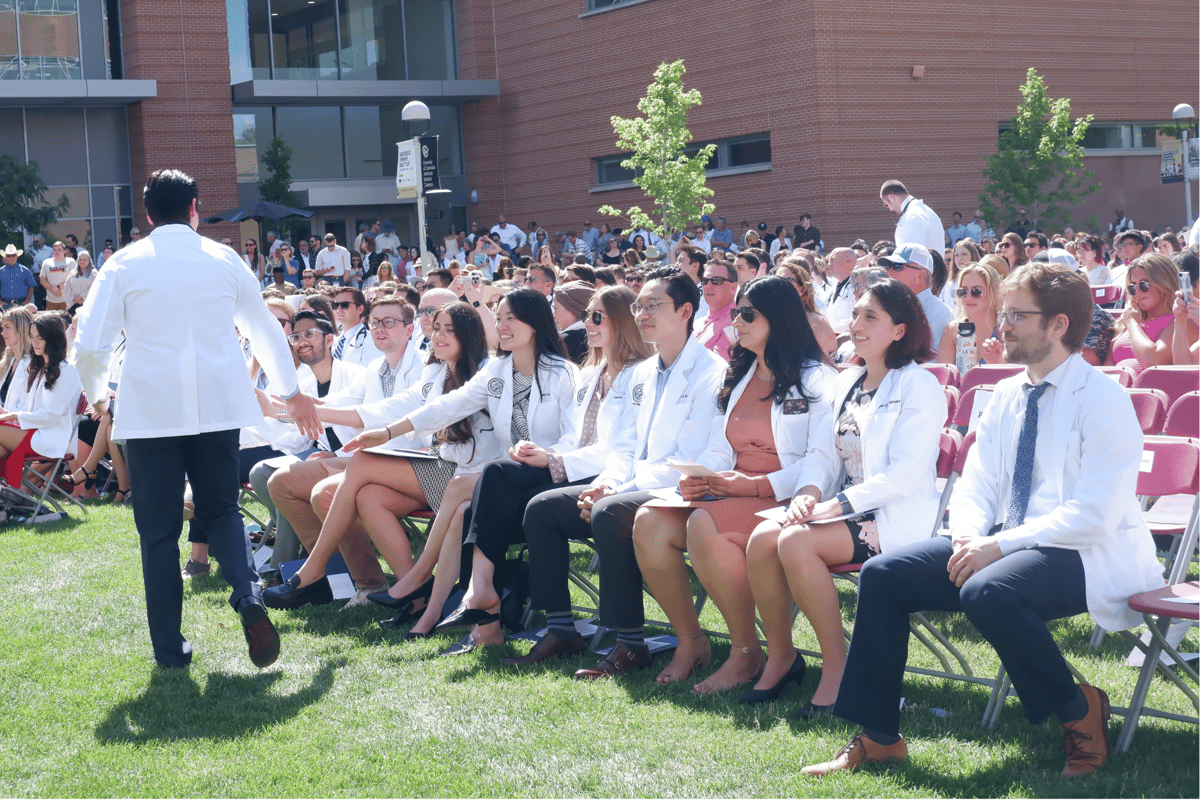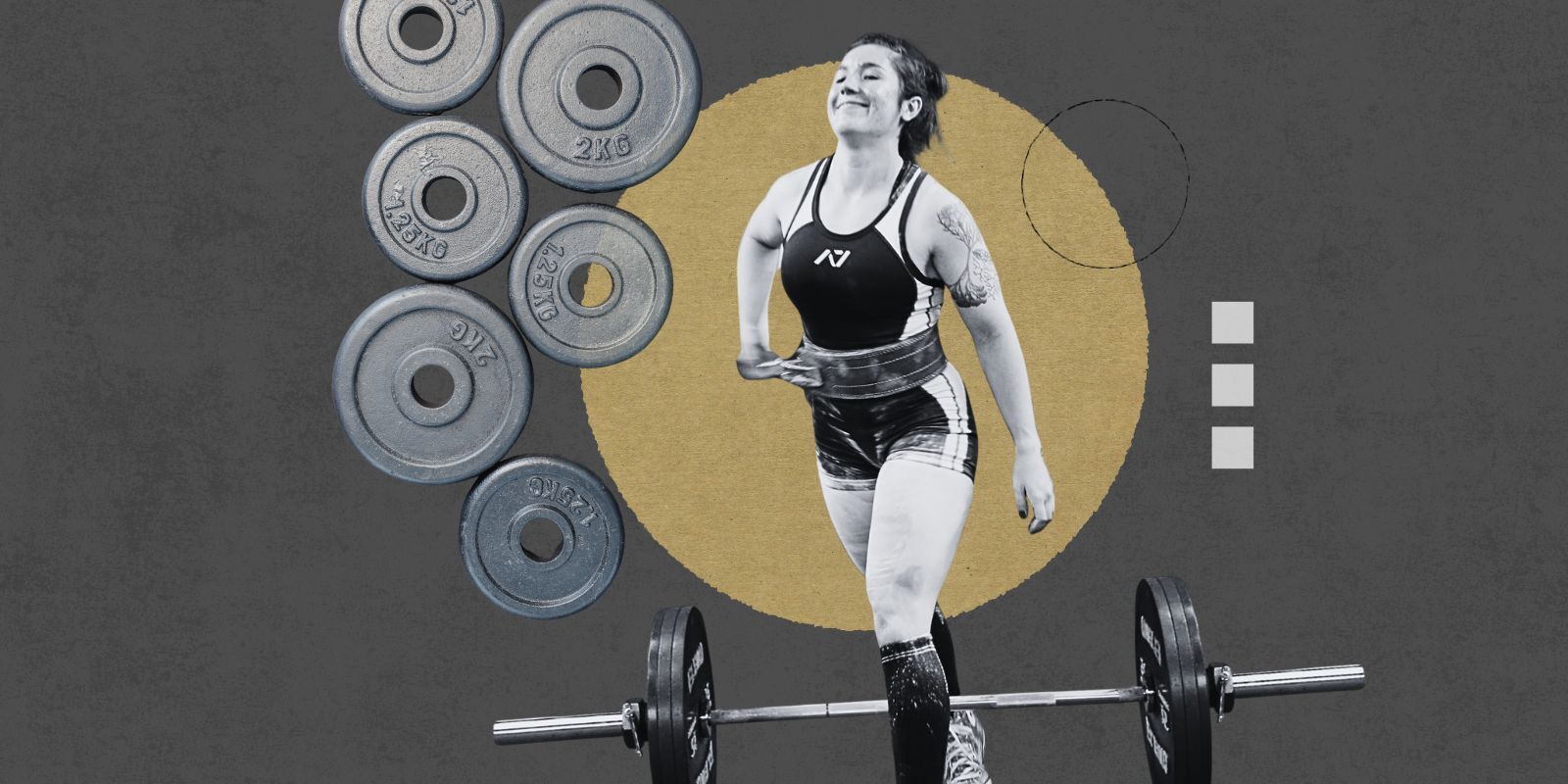One-hundred and eighty-four aspiring physicians officially began their journey at the University of Colorado School of Medicine on July 28, gathering on the CU Anschutz Medical Campus for the annual Matriculation Ceremony where they officially received their white coats. The annual tradition at medical schools around the country welcomes new classes of medical students to the profession.
“We know the Class of 2027 already holds strong beliefs that there is a meaningful path to the career they’ve chosen,” said Brian Dwinnell, MD, FACP, associate dean of student life. “We hope this ceremony serves to reinforce that.”
The Class of 2027 represents 34 U.S. states and includes 15 students who were born outside the United States. Twenty-two of its members are first-generation college graduates.
Emphasis on empathy
Dwinnell explained the origin of the White Coat Ceremony, which started at Columbia University in 1993 to highlight empathy and humanism in medicine.
Those remain areas of focus in the field of medicine, Dwinnell said, even as a widespread mistrust in science and a fear of new technologies threaten to undermine the profession.
“There’s never been a better time to enter our profession,” he said. “The care we can offer now far exceeds anything that many of us on the stage were able to offer when we trained. Remarkable new therapies are developed on a daily basis, and the knowledge and skills needed to navigate this complex profession contribute to physicians being even more valuable to society.
“Most importantly, as our society becomes increasingly polarized and less personal, physicians have the opportunity to embrace the power of understanding and conveying empathy,” he continued. “We can reach across all artificial separations between arbitrarily defined groups in society and show that everyone possesses the human spirit and deserves kindness.”
Priority on patients
John J. Reilly Jr., MD, dean of the CU School of Medicine, echoed Dwinnell’s remarks, sharing with students that the ceremony highlights the importance of the doctor-patient relationship.
“We are one of the few professions left in our society who see people from all strata of society, no matter what lens you’re using to divide our society by — understanding their needs, their values, helping them reach difficult decisions, often sharing sometimes joyous news and sometimes sharing very sad news, in the most personal moments of their lives,” he said. “We have a responsibility to speak up and advocate for people who are often silenced in our society.”
Professionalism personified
Keynote speaker Matthew Wynia, MD, MPH/MSPH professor of internal medicine, spoke to the incoming class about the importance of professionalism in medicine, which he described as “a set of beliefs about the ideal roles and responsibilities of medical professionals in the world where people are sick and suffering and need our help.”
“It's the belief that having this set of shared promises that we all uphold is important, because it's what allows the members of the public and our patients to trust us, even if they haven't met us yet,” said Wynia, who was also honored with the Faculty Professionalism Award during the ceremony.
“We get to choose the values and standards that we share and enforce within our profession. We write our code of ethics, and that’s a task that is carried out over time, over generations. Our profession must own its entire history, the good and the bad.”
Statement of honor
Friday’s ceremony also honored 20 inductees to the Gold Humanism Honor Society, members of the CU School of Medicine Class of 2024 who have shown extraordinary commitment to humanistic patient care, said Maurice “Scotty” Scott, MD, assistant dean of student affairs.
“These students are also advocates for humanism outside the world of medicine,” he said. “They cannot and will not accept the status quo. They seek equitable access for those underserved and unseen in our society, have founded projects to address issues in unhoused communities and continue to seek opportunities to mentor and guide those students and learners coming up behind them.”
After each student was called to the stage to be presented with their white coat and stethoscope, the class as a whole recited an honor statement, written by members of the class and led by Shanta Zimmer, MD, senior associate dean for education and associate dean of diversity and inclusion.
“Acknowledging the privilege we hold as future physicians, we will stand accountable to our patients,” the statement read in part. “We commit to generosity and mutual support to our peers and colleagues throughout their medical journeys. … We will approach our patients with authenticity while honoring their dignity and differences. … Regardless of the day, year, or decade, we will persist in our dedication to providing care of the highest caliber within and beyond our communities.”



















